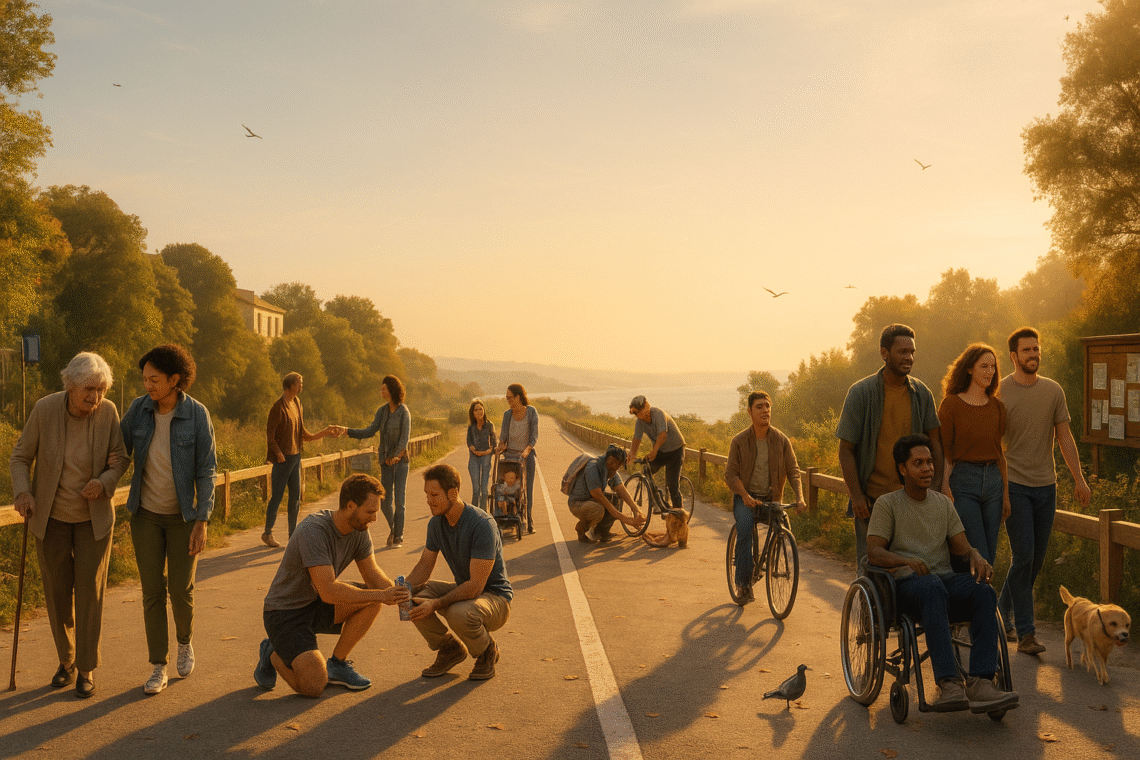On Responsibility and the Common Good
It is an odd truth of life that freedom, which we often picture as an open road stretching endlessly ahead, is in fact bounded on every side by the needs of others. We do not travel that road alone. We walk it with fellow wayfarers, some of whom stumble, some of whom race ahead, and some who, for reasons we cannot see, are barely able to move at all.
Our modern imagination likes to cast freedom as personal sovereignty , the right to live without interference. But a society of such sovereigns, each ruling a tiny kingdom of one, would soon dissolve into isolation and mistrust. A free society is not merely a collection of self-contained liberties. It is a living network of mutual regard, where my freedom is preserved not only by my will, but by your willingness to protect it, and mine to protect yours.
The paradox is plain: freedom, if it is to flourish, must be shared. It must be upheld not only for ourselves, but also for those we may not like, or understand, or agree with. It is tempting to reserve our defence for those whose lives and opinions mirror our own, yet that is the beginning of freedom’s collapse. If it is not secure for all, it is secure for none.
This is why the truest measure of freedom is not how far I can go without constraint, but how far I will go in service of the common good. Responsibility is not the enemy of liberty; it is its backbone. Without it, freedom is like a kite without a tether, a brief and erratic flight before it is lost to the wind.
History offers its share of warnings. Societies that cherished rights without cultivating duties often discovered, too late, that the public square had become a battleground of competing claims, with no common language left to arbitrate them. Responsibility requires us to remember that the very structures safeguarding our freedom, laws, institutions, trust between neighbours, are fragile. They must be tended with patience and care, like an ancient garden whose survival depends on every generation’s stewardship.
In the end, our individual liberty is strengthened, when we commit ourselves to the welfare of the whole. To step aside for another in the queue, to pay a fair share for the upkeep of the roads we all travel, to speak truth even when it costs us, these are not small acts. They are the quiet architecture of a free society.
If we see freedom only as the absence of restraint, we will spend our lives guarding our little patch of earth, fearful of encroachment. But if we see it as a shared inheritance, we will live with open hands, ready to defend, to rebuild, and to pass it on in better condition than we received it.
A society is never more free than when its members see responsibility as the highest privilege of liberty. For then, each of us is not merely free from, but free for the work of keeping the square open, the roads safe, and the kite tethered for the next flight.
How might your freedom deepen if you began to see your responsibilities as part of its strength? What small act of stewardship could you take this week for the sake of the common good?





